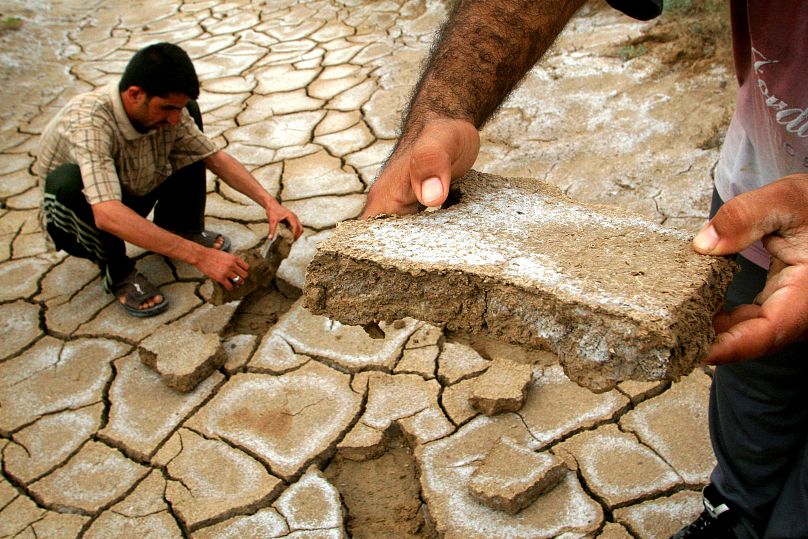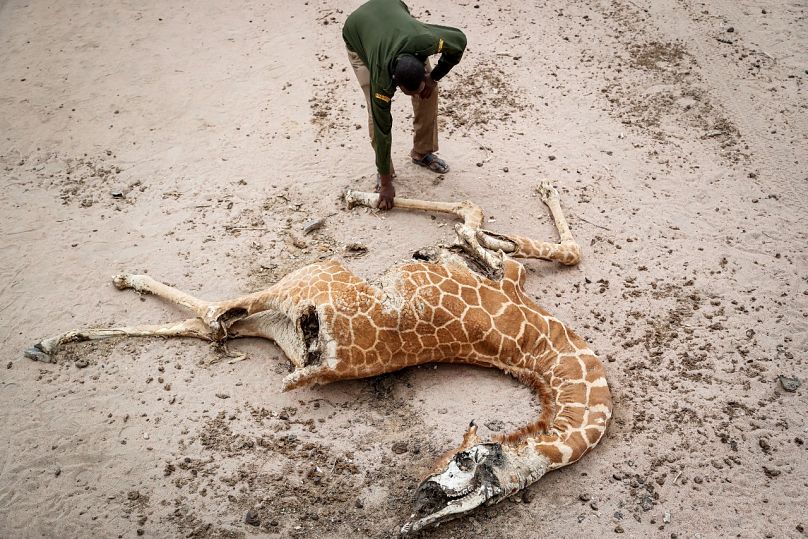Study warns: Middle East is warming twice as fast as global average
Weather of Arabia - A new climate study has raised the alarm regarding the rise in temperature in the Middle East, warning that the temperature will rise by five degrees Celsius by the end of the century if immediate measures are not taken.
A new climate study showed that the Middle East region is warming twice as much as the global average, which could have devastating effects on its peoples and economies.
As a result, more than 400 million people in the region face the risk of exposure to severe heat waves, prolonged drought, and rising sea levels, according to the study, to which a large number of researchers contributed, and the results of which were published two months before the United Nations Climate Conference (COP27) hosted by Egypt. .
The study showed a mean increase of 0.45 degrees Celsius per decade in the Middle East and the Eastern Mediterranean Basin, based on data collected between 1981 and 2019, when the global average increase was 0.27 degrees per decade.
Elevation exceeds 'critical thresholds of human adaptation'
The study warns that in the absence of immediate changes, the average temperature of the region is expected to rise by five degrees Celsius by the end of the century, which may exceed "critical thresholds for human adaptation" in some countries.
The population "will face significant health and livelihood challenges, including underserved communities, the elderly and pregnant women," says Yos Lelieveld of the Max Planck Institute for Chemistry and the Cyprus Institute, two entities that contributed to the study.
Overall warming of up to 5°C in this century projected for the Eastern Mediterranean and Middle East #climatechange #climatecrisis @EMMECARE @MaxPlanckChem | https://t.co/MMWxbfxFop pic.twitter.com/fBLWNCWaPr
— The Cyprus Institute (@CyprusInstitute) September 6, 2022
The study covers the region stretching from Greece to Egypt, passing through Lebanon, Syria, Iraq, Bahrain, Kuwait, the United Arab Emirates and Iran.
Big challenges ahead of the region
The study indicates that the Middle East will not only suffer greatly from climate change, but will also be a major contributor to its occurrence. The results show that this oil-rich region could soon become a major source of greenhouse gas emissions, outperforming the European Union within a few years.
"Since the implications of climate change transcend borders, close cooperation between the countries concerned is necessary to deal with the adverse effects of this phenomenon," Lillifeld adds.
George Zetis, one of the study's authors, warns that the expansion of dry areas and sea-level rise "will lead to significant changes in coastal areas and agriculture", particularly in the Nile Delta in Egypt.
According to the study, "almost all areas of life" will be "strongly affected" by increased heat and drought. This is likely to contribute to an increase in the death rate and exacerbate the "inequality between the rich and the poorest" in the region.
In November, representatives of nearly two hundred countries are scheduled to meet at the COP27 conference in the Egyptian Red Sea port city of Sharm el-Sheikh, to follow up on the state of affairs in terms of commitments related to the 2015 Paris Agreement, which aims to contain warming. by less than two degrees Celsius by 2100, and if possible by less than one and a half degrees Celsius.
The planet has warmed by about 1.2 degrees since the pre-industrial era. In May, the United Nations World Meteorological Organization said there was a one in two chance of reaching the 1.5 degree Celsius target within the next five years.

(An Iraqi farmer removes pieces of cracked soil from the marshes in southern Iraq.-/AFP)
Warming exceeds 1.5 degrees Celsius
According to a study whose results were published Thursday in the journal "Science", global warming above 1.5 degrees Celsius leads to many climate "turning points", which could lead to a catastrophic climate chain reaction.
A new science study presents a comprehensive multimethod analysis of the climate risks to Earth's forests in the 21st century. Learn more: https://t.co/BUYnIIGxsP pic.twitter.com/4li4d4CsHK
— Science Magazine (@ScienceMagazine) September 9, 2022
Current, already rising temperatures threaten to trigger five of these tipping points, including those related to the ice sheet in Antarctica and Greenland, the study's authors warn, who say it is not too late to start a solution path.
"For me, that would literally change the face of the world, if you look at it from space," as ocean levels rise or forests are destroyed, Tim Linton, one of the study's lead authors, told AFP. Linton signed the first major publication on the subject in 2008.
A “tipping point” is “a critical threshold beyond which a system reorganizes itself, often very rapidly and/or in an irreversible manner,” as defined by the IPCC panel. These phenomena independently and inevitably lead to further sequential consequences.

(The carcass of a giraffe that died of starvation near the village of Matana, Wajir County, Kenya - AP)
While preliminary analyzes estimated the threshold for triggering these phenomena within a warming range of 3 to 5 degrees Celsius, advances in climate monitoring techniques, as well as in reshaping past climate patterns, led to a significant reduction in this assessment. The authors of the study identified nine major "tipping points" at the planet level, and seven of them at the regional level, or 16 in total.
Among these tipping points, five could arise from current temperatures that have risen by about 1.2°C on average since before the industrial revolution: those related to the ice sheets in Antarctica and Greenland, the sudden thaw in permafrost, and the halting of the transition phenomenon Heat in the Labrador Sea and the demise of coral reefs.
With an increase in the temperature of 1.5 degrees Celsius, four other points move from the “possible” category to the “likely” category, while five other points have become “possible,” according to the study.
(JN) - (AFP)
Arabia Weather App
Download the app to receive weather notifications and more..



